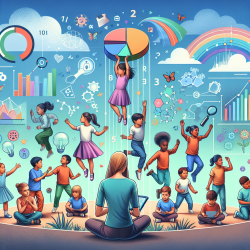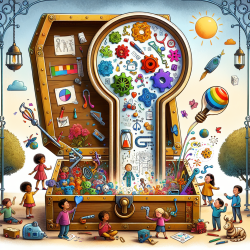Introduction
Natural disasters, such as tsunamis, have profound effects on mental health, especially in developing countries where resources are scarce. The study titled "Adolescents’ Tsunami Exposure and Mental Health Consequences: Protective Role of Cultural Coping Strategies" provides valuable insights into how cultural practices can mitigate these effects, particularly in adolescents. This blog explores the study's findings and how they can be applied to improve therapeutic practices.
Understanding the Impact of Disasters on Adolescents
The 2004 tsunami in Sri Lanka serves as a case study for understanding the mental health impacts on adolescents. The study used a sample of 160 adolescents and their mothers to explore the immediate and long-term mental health consequences of tsunami exposure. The findings revealed that exposure to traumatic events increased PTSD and depressive symptoms among adolescents. However, unique cultural practices and familism were found to moderate these effects.
The Role of Cultural Coping Strategies
Cultural coping strategies, such as the Bali, Thovil, and Atanatiya rituals, play a crucial role in mitigating mental health issues. These practices involve community participation and are deeply rooted in Sri Lankan culture. They provide a sense of spirituality and collective healing, which can be particularly beneficial for adolescents experiencing trauma.
- Bali Rituals: These are conducted to drive away evil spirits believed to cause mental illness.
- Thovil Rituals: A form of exorcism to rid individuals of spirits causing mental distress.
- Atanatiya Rituals: A Buddhist exorcism practice aimed at healing mental illness through spiritual means.
Implications for Practitioners
For practitioners, integrating these cultural practices into therapeutic interventions can enhance the effectiveness of mental health programs. Understanding the cultural context and leveraging these traditional practices can lead to more effective, culturally sensitive interventions. This approach aligns with the stress process perspective, which emphasizes the role of psychosocial resources in supporting resilience.
Encouraging Further Research
While the study provides a robust framework for understanding the role of cultural practices in mental health, further research is needed to explore the differential effects of these practices on PTSD and depressive symptoms. Practitioners are encouraged to investigate these cultural strategies further to develop comprehensive intervention programs.
To read the original research paper, please follow this link: Adolescents’ Tsunami Exposure and Mental Health Consequences: Protective Role of Cultural Coping Strategies.










